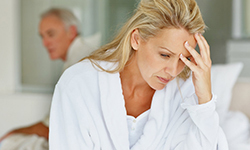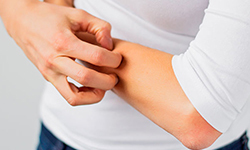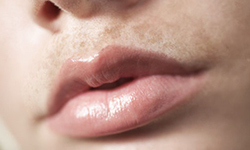There’s more to menopause than hot flashes and night sweats. Are you aware that falling Estrogen levels wreak havoc with your skin?
-
What is menopause?

So, what really happens inside the body?
-
Hormonal Changes:

As a result of which, you experience several menopausal symptoms such as disturbed sleep, urinary problems, mood swings, and the obvious drop in fertility.
-
Does this affect the skin?

Dryness & itching
Estrogen is meant to stimulate the production of skin-smoothing collagen and oils. This is why, as menopause approaches the skin starts becoming dry and itchy.
Testosterone dominance
As testosterone becomes more dominant, you may experience acne and
the appearance of facial hair, along with voice deepening.
Hyperpigmentation & age spots

How to deal with it?
- Moisturise Opt for body lotions that can replenish normal skin oils and beat the dryness. Moisture-heavy products that contain seaweed and algae extracts work wonders for facial skin.
- Stock up on anti-oxidants Topical application provides an extra boost to the skin.
- Boost your intake of vitamins and minerals
- Waxing and threading It will help tackle facial hair problems but a laser treatment will be easier and more beneficial.
- Protection Slather on a broad-spectrum sunscreen before stepping out.
- Acne Acne is stimulated by over-active sebaceous glands. Don’t panic, find a dermatologist to seek help – topical and oral medication works wonders.
Menopause and skin problems date far back in time – there’s nothing to worry about as long as you take care of your skin and listen to what your body says. Remember, self-care is the best care, beyond which you always have a dermatologist to turn to in the time of need.














